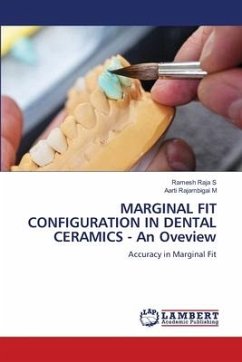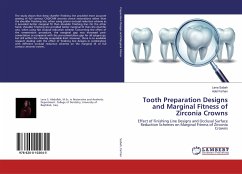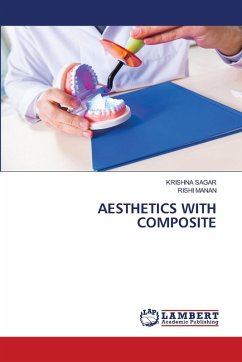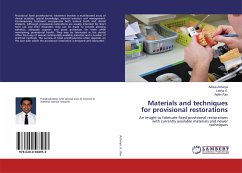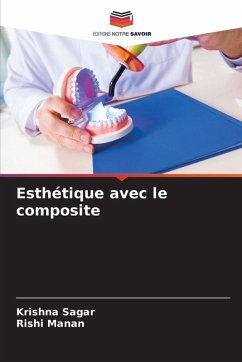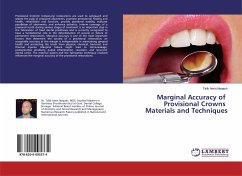
Marginal Accuracy of Provisional Crowns Materials and Techniques
Versandkostenfrei!
Versandfertig in 6-10 Tagen
27,99 €
inkl. MwSt.

PAYBACK Punkte
14 °P sammeln!
Provisional (interim/ temporary) restorations are used to safeguard and sedate the pulp of prepared abutments, promote periodontal healing and health, rehabilitate oral function, provide positional stability, evaluate parallelism of abutments, and enhance esthetics. Interim coverage of a prepared tooth during various stages of treatment is an important step in the fabrication of fixed dental prostheses and is currently recognized to have a fundamental role in the determination of success or failure of permanent restorations. Marginal accuracy is one of the most important factors that determine...
Provisional (interim/ temporary) restorations are used to safeguard and sedate the pulp of prepared abutments, promote periodontal healing and health, rehabilitate oral function, provide positional stability, evaluate parallelism of abutments, and enhance esthetics. Interim coverage of a prepared tooth during various stages of treatment is an important step in the fabrication of fixed dental prostheses and is currently recognized to have a fundamental role in the determination of success or failure of permanent restorations. Marginal accuracy is one of the most important factors that determine the success of a provisional restoration; an acceptable accuracy at the margin is indispensable in maintaining gingival health and protecting the tooth from physical, chemical, bacterial, and thermal injuries. Marginal failure might lead to micro-leakage, postoperative sensitivity, pulpal inflammation, recession, and recurrent dental caries. The material system and the fabrication techniqueinvolved influences the marginal accuracy of the provisional restorations.



